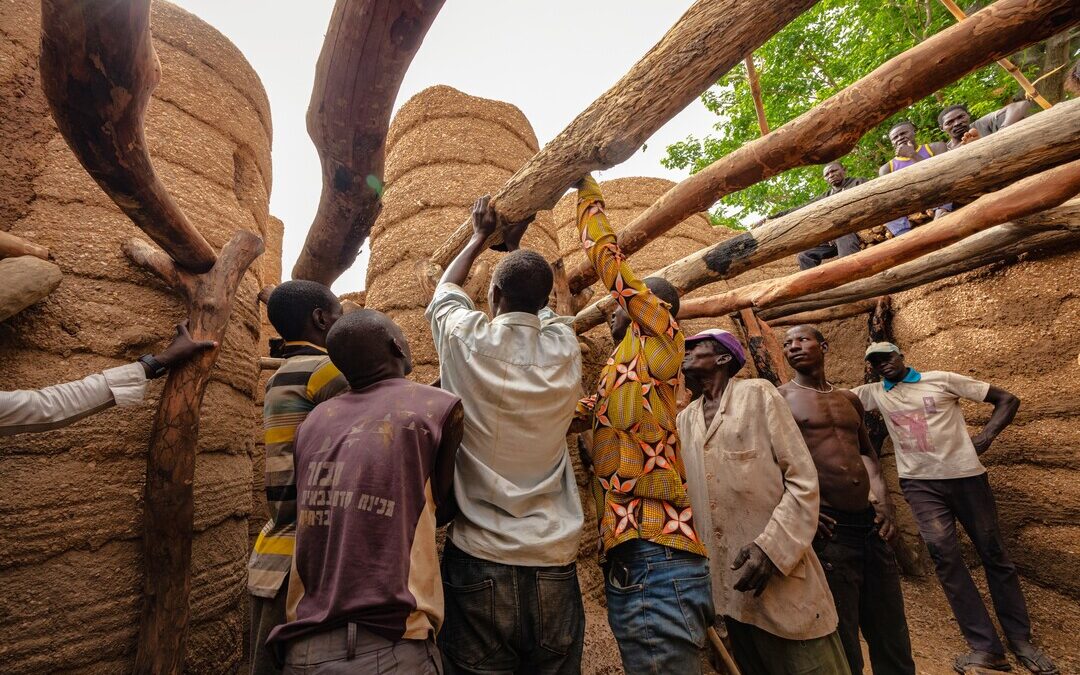Four Community Initiatives Win Local Climate Adaptation Awards at COP30
Four community-led projects from India, Kenya, Peru and beyond win global recognition for climate resilience at COP30.
Four community-led initiatives from India, Kenya, Peru and a global heritage network were honored at the 2025 Local Adaptation Champions Awards during the COP30 climate summit in Belém, recognizing their innovative, locally driven responses to the climate crisis.
Local Leaders Drive Global Adaptation
The Global Center on Adaptation, in partnership with the United Kingdom’s Foreign, Commonwealth and Development Office, presented the awards to recognize locally led efforts that strengthen resilience against climate change.
Each winner received €15,000 ($17,325) to expand their work and will gain technical sponsorship from the Adaptation Fund.
“Today we celebrate those who lead every day on the frontlines of climate change,” said Patrick Verkooijen, GCA’s chief executive officer. “When local actors are empowered, adaptation delivers real, lasting results. The world must now partner with and invest in these local leaders who are transforming climate action from the ground up.”
Selected from 20 shortlisted projects, the winners represent four categories — Citizen Science, Health, Nature-based Solutions and Women’s Livelihoods. Their work shows how communities are reshaping adaptation with knowledge, culture and cooperation.
Reviving Heritage as a Tool for Adaptation
Preserving Legacies, a global organization operating in 35 countries, won in the Citizen Science category for blending ancestral wisdom with modern science to help communities adapt to climate stress.
The group empowers heritage custodians, elders, youth and artisans to protect cultural landscapes ranging from West Africa’s earthen tower houses to Himalayan sacred sites. Its work demonstrates that tradition can be a foundation for innovation.
“Heritage is not just about preservation,” said Dr. Salma Sabour, the organization’s director of science. “It’s about building a resilient future shaped by the values and identities of local people.”
Health Resilience from the Ground Up
In Kenya, Foundation for Tomorrow received the Health award for a climate-responsive health and psychosocial program that supports residents in Nairobi’s informal settlements.
The initiative brings healthcare, trauma counseling and emergency preparedness directly to vulnerable communities. It emphasizes inclusion, ensuring women, youth and persons with disabilities take leading roles in decision-making.
“Our model dismantles barriers to healthcare by decentralizing services and addressing stigma,” said George Kakala, F4T’s executive director. “Resilience here is a lived experience rooted in equity and community ownership.”
Ancestral Water Systems Secure Peru’s Future
Peru’s Aquafondo won in the Nature-based Solutions category for reviving pre-Incan water systems in the Andes to combat water scarcity in Lima and nearby regions.
Working with rural communities, the nonprofit has restored ancient canals, wetlands and reservoirs to replenish groundwater and stabilize ecosystems. The effort bridges indigenous knowledge and modern science to ensure water security.
“This is more than a nature-based solution,” said Aquafondo executive director Mariella Sánchez. “It’s a solution grounded in memory, dignity and unity. By sowing water, we are sowing resilience.”
Women Farmers Transform India’s Drought Belt
From India’s Odisha state, AJSA India earned the Women’s Livelihoods award for organizing more than 5,500 tribal women farmers into cooperatives that drive climate-smart agriculture in Kalahandi, once known for drought and deprivation.
These women manage crop cycles, run electric “Green Express” carts for market access and lead decision-making in their communities. Their work has boosted income and reshaped gender roles in local governance.
“Many women who once had no say are now board members and community trainers,” said AJSA executive director Manoranjan Behera. “Our model tackles both inequality and climate vulnerability through women’s leadership.”
A Call to Scale Local Innovation
The winners were chosen by a panel including former UN Secretary-General Ban Ki-moon, Brazil’s First Lady Janja Lula da Silva and UK Minister for International Development Baroness Chapman.
GCA said the honorees embody a critical truth: meaningful adaptation must start and stay local. As Verkooijen noted, “They remind the world that solutions to climate change are already here — if we choose to listen and invest.”
The COP30 platform, GCA added, offered a vital global stage to highlight these local champions and the need for scaled, inclusive adaptation. Their stories highlight how grassroots leadership, backed by partnerships, can drive the transformation needed beyond COP30.
Nirmal Menon
Related posts

Subscribe
Error: Contact form not found.


